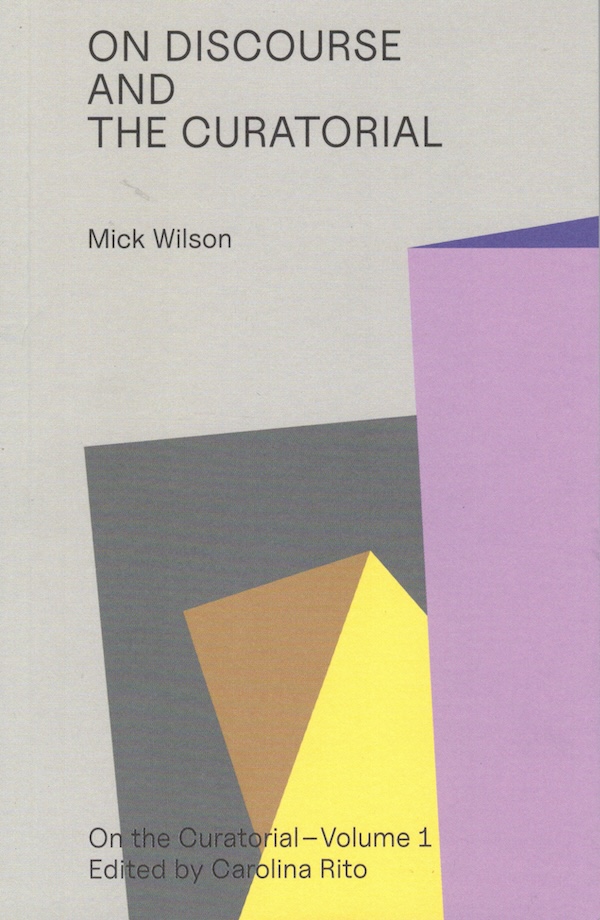
Censored Tee
T-shirt collector imprimé en sérigraphie “LA LUTTE COMMENCE DANS L’IMAGINAIRE” au dos et le logo CENSORED devant. Manche longues noir.
Tailles X et XL disponibles.

T-shirt collector imprimé en sérigraphie “LA LUTTE COMMENCE DANS L’IMAGINAIRE” au dos et le logo CENSORED devant. Manche longues noir.
Tailles X et XL disponibles.

A scrapbook on Baillie's life and career, with stills, ephemera and writings by filmmakers across generations.
This is the first book on the West Coast avant-garde filmmaker Bruce Baillie (1931-2020), famed for the films Mass for the Dakota Sioux (1964), Castro Street (1966) and All My Life (1966) and for his influence on directors such as George Lucas (one of Lucas' charitable foundations helped fund the digital transfer of Baillie's films) and Apichatpong Weerasethakul. Alongside stills from Baillie's films, the book fosters a dialogue between Baillie and filmmakers and writers across several generations, including experimental filmmaker Peter Hutton, filmmaker and anthropologist J.P. Sniadecki and Jonas Mekas, along with suites of images by the Thai director Apichatpong Weerasethakul, British artist and experimental filmmaker Ben Rivers and Brazilian artist and filmmaker Ana Vaz, among others. Reproductions of correspondence and other ephemera are also included.

Production of exhibitions and production of discourse on exhibitions.
With the paradigm of salon exhibitions, developed some three centuries ago, bourgeois art patrons were moved to transform their experience of an exhibition into words. This incitement to discourse persists as a central component of contemporary curatorial practice, within and beyond exhibitions as singular events. In On Discourse and the Curatorial, Mick Wilson draws out the link between the dual imperatives to generate discourse and to cultivate culture, which emerge in the genealogy of the salon, the exhibition complex, and the museum.
In the early 2010s, the idea of "the curatorial" arose after a short but intense debate about what it means to curate exhibitions. The books in the On the Curatorial series look at the consequences of that discussion today and ask: Do we need different curatorial tools to engage with deepening social, political, and ecological crises? The series allows earlier participants in the debate to reflect on how their concepts and practices have changed, while younger generations of curators explore the ongoing need for new conceptual approaches to curation.
The series is edited by Carolina Rito, who is professor of creative practice research at the Research Centre for Arts, Memory, and Communities, Coventry University, UK, and executive editor of Contemporary Journal.
Mick Wilson is professor of art and director of doctoral studies at the University of Gothenburg and co-chair of the Centre for Art and the Political Imaginary.

Oslo National Academy of the Arts
Publication documenting the research made by Dora García for a video project on Oscar Masotta, pioneer of Lacanian psychoanalysis in Latin America and influential art critic.
It features a selection of Masotta's writings as well as contextual essays on his work.Segunda Vez is an art research project centered on the figure of Oscar Masotta (Buenos Aires, 1930, Barcelona, 1979), an author of groundbreaking texts about the Happening, art, and dematerialization, a pioneer of Lacanian psychoanalysis in the Spanish-speaking world, and a happenista. The project has yielded a full-length and four medium-length films by Dora García, two Cahiers documenting the research, and this book. Segunda Vez: How Masotta Was Repeated offers a selection of Masotta's writings, including his early study of Argentinean author Roberto Arlt, as well as texts that contextualize Masotta's thought and broaden the reach of his reflections on the intersections between performance and psychoanalysis, art and politics.
Edited by Emiliano Battista.
Texts by Dora García, Oscar Masotta, Roberto Bolaño, Jorge Jinkis, Inés Katzenstein, Ana Longoni, Emiliano Battista, Aaron Schuster, Julio Cortázar.
English edition
13,5 x 21 cm (hardcover)
320 pages (color & b/w ill.)

Caribbean Carnivals have been taking place around the UK since 1959. These joyous celebrations of culture and community began as acts of resistance in the face of enslavement — a defiant stand from communities who refused to lose who they were and where they came from.
Drawing from this rich and radical history, Aisling Serrant explores Carnival through one of its most vibrant and unmissable features: costume. First turned to by former slaves in the Caribbean as an act of reclamation and quiet resistance, with roots in West African and European masquerade alike, the colourful costumes of Carnival weekend remain a vital mode of self-expression, protest, and camaraderie. From Canboulay to Leeds and Notting Hill, the costume makers, wearers, and the communities they attract, embody Carnival in the spirit of an expression used across the Caribbean to signify unity among nations and peoples: all ah we is one.

A collection of brief descriptions of Toine's movement performances- and installations since 1979. The book, that started four years ago as a possible form in which Toine's ephemeral works could live on, gradually developed into a writing project about movement and the imaginative power of language.
Each of the 120 selected works has been translated in the most concise way into words and sentences.
Because of the possible role that the book could play in the discussion about conserving and documenting volatile works of art, Toine included related texts by other writers who directly or indirectly responded to my writing: Marcus Bergner Hannes Böhringer Florian Cramer Jan Van Den Dobbelsteen Nell Donkers Tim Etchells Ger Groot Geert Koevoets Thomas Körtvelyessy Dom H. van der Laan Dick Raaijmakers Jan Laurens Siesling Sandra Smets Hans Stevens ieke Trinks Samuel Vriezen Ciel Werts - Emilie Gallier
Editing and text advice Kathrin Wolkowicz Dick van Teylingen
translations: Simon Benson Maaike Trimbach Samuel Vriezen Helen Adkins Vincent W.J. van Gerven Oei
graphic design: Koos Siep
Edition: 2 x 250 copies